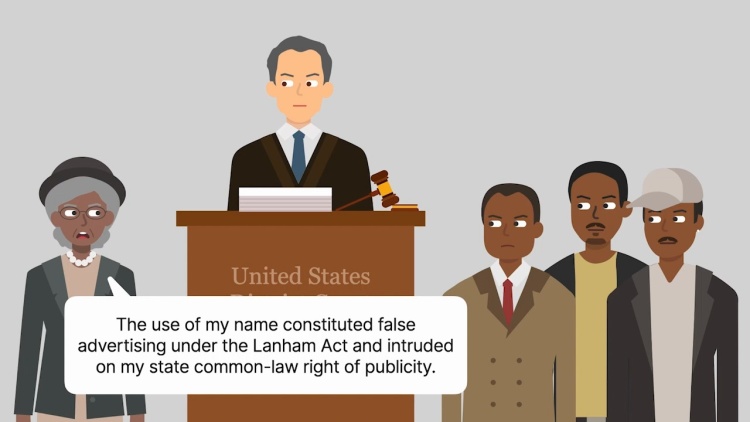Parks v. LaFace Records
United States Court of Appeals for the Sixth Circuit
329 F.3d 437 (2003)
- Written by Eric Miller, JD
Facts
The rap duo OutKast (defendant) released a song called “Rosa Parks” as a single. The title alluded to Rosa Parks (plaintiff), best known for her participation in a 1955 protest against segregated busses. However, the lyrics contained no references to Parks except for the repeated line “Move to the back of the bus,” which was intended as a symbolic boast of OutKast’s superiority over its competitors in the music industry. Parks, who did not authorize the use of her name, brought suit against OutKast, record producers LaFace (defendant), and record companies Arista Records (Arista) (defendant) and BMG Entertainment (BMG) (defendant). Parks alleged that the song violated the Lanham Act, which prohibited the misleading use of a person’s identity to sell a product, including the false appearance of celebrity sponsorship. Parks also alleged that her right of publicity had been violated. The district court granted summary judgment in favor of OutKast, LaFace, Arista, and BMG on freedom-of-expression grounds. Parks appealed. The United States Court of Appeals for the Sixth Circuit granted certiorari.
Rule of Law
Issue
Holding and Reasoning (Holschuh, J.)
What to do next…
Here's why 907,000 law students have relied on our case briefs:
- Written by law professors and practitioners, not other law students. 47,100 briefs, keyed to 996 casebooks. Top-notch customer support.
- The right amount of information, includes the facts, issues, rule of law, holding and reasoning, and any concurrences and dissents.
- Access in your classes, works on your mobile and tablet. Massive library of related video lessons and high quality multiple-choice questions.
- Easy to use, uniform format for every case brief. Written in plain English, not in legalese. Our briefs summarize and simplify; they don’t just repeat the court’s language.





